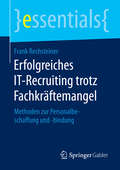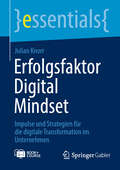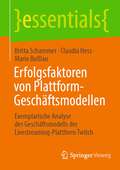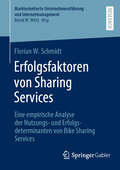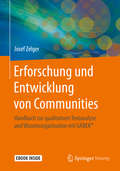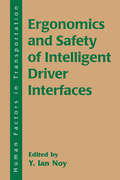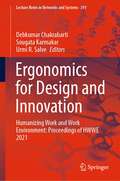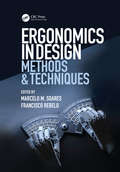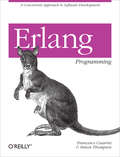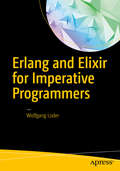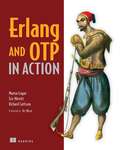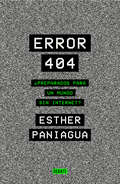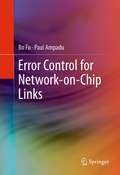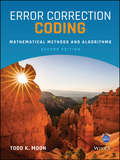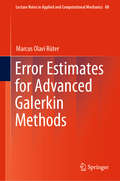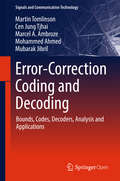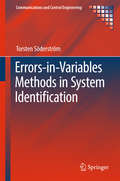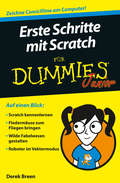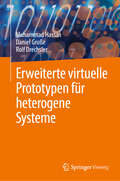- Table View
- List View
Erfolgreiches IT-Recruiting trotz Fachkräftemangel: Methoden zur Personalbeschaffung und -bindung (essentials)
by Frank RechsteinerFrank Rechsteiner liefert neue Strategien und Handlungsempfehlungen zur Rekrutierung von hochqualifizierten IT-Spezialisten. Basierend auf zahlreichen Umfragen und Studien zeigt er wichtige Trends f#65533;r den Arbeits- und Bewerbermarkt im IT-Bereich auf und gibt Tipps zum erfolgreichen Umgang mit den derzeitigen Herausforderungen. Das essential l#65533;dt HR-Verantwortliche und Gesch#65533;ftsf#65533;hrer ein, spezialisierte IT-Mitarbeiter nicht nur als Ressource zu betrachten, sondern auf die besonderen Bed#65533;rfnisse dieser Berufsgruppe einzugehen. Die daraus abgeleiteten Ma#65533;nahmen erm#65533;glichen es, geeignete Experten zu finden und dauerhaft an das Unternehmen zu binden.
Erfolgsfaktor Agilität: Warum Scrum und Kanban zu zufriedenen Mitarbeitern und erfolgreichen Kunden führen
by Janko BöhmMehr und mehr Unternehmen gehen dazu über, agile Organisationsstrukturen umzusetzen – oder versuchen sich daran. Ein Unternehmen von der klassischen, abteilungsorientierten Struktur zu einem agilen Unternehmen zu wandeln, erfordert nicht nur vom Geschäftsführer und den Führungskräften ein Umdenken. Auf dem Weg hin zur agilen Organisation ist dieses Buch ein wichtiges Hilfsmittel. Es zeigt die Grundlagen der beweglichen Produktentwicklung auf, erläutert Zusammenhänge und Konsequenzen. Es richtet sich dabei an:• Unternehmer und Führungskräfte, die moderne Arbeitsbedingungen schaffen wollen, um gute Mitarbeiter zu halten• Mitarbeiter, die künftig in agilen Teams arbeiten werden oder dies bereits tun, um selbstbestimmt und kreativ zu sein• Kunden, die das für die aktuelle Marktsituation passende Produkt schnell und kostengünstig wollenDurch die Erklärung der wichtigsten Fachbegriffe und Zusammenhänge erfährt der Leser, warum und wie die agile Idee in einem Unternehmen Erfolg schafft. Janko Böhm leitet den Erfolgsfaktor Agilität in seinem Buch anhand der zwei gebräuchlichsten agilen Methoden „Scrum“ und „Kanban“ her. Damit wird das Buch zum praktischen Helfer für das Team und die eigene Organisation.
Erfolgsfaktor Digital Mindset: Impulse und Strategien für die digitale Transformation im Unternehmen (essentials)
by Julian KnorrDieses essential beschäftigt sich mit den Treibern der digitalen Transformation und wie Unternehmen ihre Geschäftsmodelle, Prozesse und Technologien anpassen können, um zukunftsfähig zu bleiben. Gerade wenn tiefgreifende Veränderungen notwendig sind, wird das „Digital Mindset“ der Mitarbeiter*innen zum zentralen Erfolgsfaktor der digitalen Transformation. Wer ist Hinterfrager und wer Befürworter – wer ist Brückenbauer und wer digitaler Nerd? Digitalisierungsexperte Julian Knorr plädiert für eine ganzheitliche Betrachtung von Unternehmen für einen nachhaltigen Wandel und liefert Strategien sowie praktische Tipps für eine erfolgreiche Transformation.
Erfolgsfaktoren von Plattform-Geschäftsmodellen: Exemplarische Analyse des Geschäftsmodells der Livestreaming-Plattform Twitch (essentials)
by Britta Schammer Claudia Hess Mario BoßlauDieses essential betrachtet die Erfolgsfaktoren von Plattform-Geschäftsmodellen am Beispiel der international erfolgreichen Livestreaming-Plattform Twitch. Die Funktionsweise des Geschäftsmodells wird dabei mit Hilfe einer Adaption des Business Model Canvas für zweiseitige Plattformen untersucht. Das Vorgehen für die Analyse lässt sich im Sinne eines Werkzeugkastens auf andere Unternehmen übertragen. Das Verständnis für die im Buch beschriebenen Erfolgsfaktoren von Twitch kann eigene Geschäftsmodelle inspirieren.
Erfolgsfaktoren von Sharing Services: Eine empirische Analyse der Nutzungs- und Erfolgsdeterminanten von Bike Sharing Services (Marktorientierte Unternehmensführung und Internetmanagement)
by Florian W. SchmidtIn diesem Band werden zunächst die Erfolgsfaktoren und der Erfolg von Bike Sharing Services konzeptionalisiert und operationalisiert. Darauf aufbauend wird auf Basis des IS-Success Model ein Erklärungsmodell für den Erfolg von Bike Sharing Services abgeleitet.
Erforschung und Entwicklung von Communities: Handbuch zur qualitativen Textanalyse und Wissensorganisation mit GABEK®
by Josef ZelgerDieses Buch untersucht die Entwicklung von Communities mit Hilfe des GABEK®-Verfahrens Was hält Gemeinschaften zusammen? Diese Frage erforscht dieses Buch über die Entwicklung von Communities. Wichtiges Werkzeug ist dabei das Verfahren GABEK® (GAnzheitliche BEwältigung von Komplexität). Es analysiert u. a. Konzepte, Ontologien, Wertvorstellungen, Meinungen über Ursachen und Wirkungen sowie emotionale Einstellungen, die die Mitglieder einer Community verbinden. Durch eine softwareunterstützte Textanalyse werden sie in Form linguistischer Netze systematisiert. Diese Netze werden wiederum als Meinungslandkarten in unterschiedlichen Komplexitätsstufen dargestellt. Das Buch zeigt, wie Sie auf diese Weise Denk- und Handlungsmuster ableiten, die bei der Entwicklung von Communities oder auch bei der Organisationsentwicklung eine große Rolle spielen. Durch qualitative Textanalysen ermöglicht GABEK das Verständnis der Gesamtsituation und die Theoriebildung. Das Verfahren erleichtert die Konfliktlösung und eine Ausrichtung der Community auf strategische Ziele und Zukunftsvisionen, die von den meisten Betroffenen akzeptiert werden, auch wenn es um Erneuerung und Reformen geht.Theoretische Grundlagen werden mit Anwendungsbeispielen verknüpft Nach einer kurzen Beschreibung der qualitativen Methoden des GABEK-Verfahrens, untersucht dieses Buch die Entwicklung von Communities am Beispiel des Stadtteils Tepito in Mexico City. Anschließend befasst sich dieses Werk mit speziellen Themen, die mit der Gemeinschaftsbildung verbunden sind wie etwa:Sinn- und BedeutungszusammenhängeBegriffsanalysen durch BedeutungszusammenhängeVon Begriffsnetzen zu Ontologien durch KomplexitätsreduktionLinguistische GestaltbildungBewusste und unbewusste WissensverarbeitungProblemlösung durch den simulierten DialogUm die Entwicklung von Communities aufschlussreich zu untersuchen, liefert Ihnen dieses Buch neben theoretischen Grundlagen auch immer wieder konkrete Anwendungsbeispiele des Verfahrens GABEK, das Sie bei der Entscheidungsfindung und Organisationsentwicklung unterstützt. Abschließend beschreibt der Autor eine Zukunftsvision über die Entwicklung von Communities durch ein System der dynamischen Wissensorganisation. Auf diese Weise zeigt Ihnen dieses Werk mögliche Wege zu einer zukunftsorientierten Entwicklung von Organisationen, Gemeinden, Regionen oder Vereinen und Interessensgemeinschaften auf.
Ergonomics and Nudging for Health, Safety and Happiness: Results of SIE 2022 (Springer Series in Design and Innovation #28)
by Sara Albolino Ennio Bilancini Tommaso BellandiThis book presents the best, peer-reviewed contributions from the XII Congress of the Italian Society of Ergonomics and Human Factors (SIE), held in Lucca, Italy, on May 2-4, 2022. By highlighting the latest theories and models, as well as cutting-edge technologies and applications, and by combining findings from a range of disciplines including engineering, design, robotics, management, computer science, human biology and behavioral sciences, it provides researchers and practitioners alike with a comprehensive, timely guide on human factors and ergonomics in a variety of industrial sectors, such as health care, transportation, automotive and constructions. It also offers an excellent source of innovative ideas to stimulate future discussions and developments aimed at applying knowledge and techniques to optimize system performance, while at the same time promoting health, safety, and well-being of individuals anc communities. The proceedings includes papers from researchers and practitioners, scientists and physicians, institutional leaders, managers, and policy makers that contribute to constructing the Human Factors and Ergonomics approach across a variety of methodologies, domains, and productive sectors.
Ergonomics and Safety of Intelligent Driver Interfaces (Human Factors In Transportation Ser.)
by Y. Ian NoyEven to the casual observer of the automotive industry, it is clear that driving in the 21st century will be radically different from driving as we know it today. Significant advances in diverse technologies such as digital maps, communication links, processors, image processing, chipcards, traffic management, and vehicle positioning and tracking, are enabling extensive development of intelligent transport systems (ITS). Proponents of ITS view these technologies as freeing designers to re-define the role and function of transport in society and to address the urgent problems of congestion, pollution, and safety. Critics, on the other hand, worry that ITS may prove too complex, too demanding, and too distracting for users, leading to loss of skill, increased incidence of human error, and greater risk of accidents. The role of human factors is widely acknowledged to be critical to the successful implementation of such technologies. However, too little research is directed toward advancing the science of human-ITS interaction, and too little is published which is useful to system designers. This book is an attempt to fill this critical gap. It focuses on the intelligent driver interface (IDI) because the ergonomics of IDI design will influence safety and usability perhaps more than the technologies which underlie it. The chapters cover a broad range of topics, from cognitive considerations in the design of navigation and route guidance, to issues associated with collision warning systems, to monitoring driver fatigue. The chapters also differ in intent -- some provide design recommendations while others describe research findings or new approaches for IDI research and development. Based in part on papers presented at a symposium on the ergonomics of in-vehicle human systems held under the auspices of the 12th Congress of the International Ergonomics Association, the book provides an international perspective on related topics through inclusion of important contributions from Europe, North America, and Japan. Many of the chapters discuss issues associated with navigation and route guidance because such systems are the most salient and arguably the most complex examples of IDI. However, the findings and research methodologies are relevant to other systems as well, making this book of interest to a wide audience of researchers, design engineers, transportation authorities, and academicians involved with the development or implementation of ITS.
Ergonomics for Design and Innovation: Humanizing Work and Work Environment: Proceedings of HWWE 2021 (Lecture Notes in Networks and Systems #391)
by Debkumar Chakrabarti Sougata Karmakar Urmi R. SalveThis book presents the proceedings of the 19th International Conference of the Indian Society of Ergonomics (HWWE), held in Guwahati, India, on December 1-3, 2021. By highlighting the latest theories and models, as well as cutting-edge technologies and applications, and by combining findings from a range of disciplines including engineering, design, health care, management, computer science, and behavioral science, it provides researchers and practitioners alike with a comprehensive, timely guide on user-centered design for quality life, human factors and ergonomics, design applications, cognitive processing, and response. It also offers an excellent source of innovative ideas to stimulate future discussions and developments aimed at applying knowledge and techniques to optimize system performance, while at the same time promoting the health, safety, and well-being of individuals. The proceedings includes papers from researchers and practitioners, scientists and physicians, institutional leaders, managers, and policy makers that contribute to constructing the human factors and ergonomics approach across a variety of methodologies, domains, and productive sectors.
Ergonomics in Design: Methods and Techniques (Human Factors and Ergonomics)
by Francisco Rebelo Marcelo M. SoaresCurrently people deal with various entities (such as hardware, software, buildings, spaces, communities and other people), to meet specific goals while going about their everyday activities in work and leisure environments. These entities have become more and more complex and incorporate functions that hitherto had never been allocated such as automation, use in virtual environments, connectivity, personalization, mobility and friendliness. This book contributes to the analysis of human-system interactions from the perspective of ergonomics, regardless of how simple or complex they are, while incorporating the needs of users and workers in a healthy safe, efficient and enjoyable manner. This book provides a comprehensive review of the state of the art of current ergonomic in design methods and techniques that are being applied to products, machinery, equipment, workstations and systems while taking new technologies and their applications into consideration. Ergonomics in Design: Methods and Techniques is organized into four sections and 30 chapters covering topics such as conceptual aspects of ergonomics in design, the knowledge of human characteristics applied to design, and the methodological aspects of design. Examples are shown in several areas of design including, but not limited to, consumer products, games, transport, education, architecture, fashion, sustainability, biomechanics, intelligent systems, virtual reality, and neurodesign. This book will: Introduces the newest developments in social-cultural approaches Shows different ergonomics in design methodological approaches Divulges the ways that ergonomics can contribute to a successful design Applies different subjects to support the design including –ergonomics, engineering, architecture, urbanism, neuro, and product designs. Presents recent technologies in ergonomic design, as applied to product design. With the contributions from a team of 75 researchers from 11 countries, the book covers the state-of-the-art of ergonomics in a way to produce better design.
Erlang Programming: A Concurrent Approach to Software Development
by Francesco Cesarini Simon ThompsonThis book is an in-depth introduction to Erlang, a programming language ideal for any situation where concurrency, fault tolerance, and fast response is essential. Erlang is gaining widespread adoption with the advent of multi-core processors and their new scalable approach to concurrency. With this guide you'll learn how to write complex concurrent programs in Erlang, regardless of your programming background or experience. Written by leaders of the international Erlang community -- and based on their training material -- Erlang Programming focuses on the language's syntax and semantics, and explains pattern matching, proper lists, recursion, debugging, networking, and concurrency.This book helps you:Understand the strengths of Erlang and why its designers included specific featuresLearn the concepts behind concurrency and Erlang's way of handling itWrite efficient Erlang programs while keeping code neat and readableDiscover how Erlang fills the requirements for distributed systemsAdd simple graphical user interfaces with little effortLearn Erlang's tracing mechanisms for debugging concurrent and distributed systemsUse the built-in Mnesia database and other table storage featuresErlang Programming provides exercises at the end of each chapter and simple examples throughout the book.
Erlang and Elixir for Imperative Programmers
by Wolfgang LoderLearn and understand Erlang and Elixir and develop a working knowledge of the concepts of functional programming that underpin them. This book takes the author's experience of taking on a project that required functional programming and real-time systems, breaks it down, and organizes it. You will get the necessary knowledge about differences to the languages you know, where to start, and where to go next. Have you been told by your customer or manager that they heard good things about Erlang, you should use it for the next project? Never had to deal with functional programming or real-time systems? In 2014, the author, Wolfgang Loder, developed a repository for digital assets that had to deliver those assets in binary form quickly and reliably, being able to deal with at least hundreds of requests per second. Since he could decide the architecture and software stack of the solution, he immediately thought of Erlang and its libraries and started to evaluate this option. It was not long after that he discovered Elixir, which sits on top of the Erlang virtual machine and has features more palatable for non-functional programmers, although it is a functional programming language itself. Erlang and Elixir for Imperative Programmers gives you a basis for deciding whether the effort is viable for your next project. This book is partly a tale of the author's own experience and partly a description of the bigger and more subtle differences between Erlang/Elixir and languages such as C++, Java, and C#. What You'll Learn Discover functional programming, Erlang, and Elixir Work on service design and service features Set up your environment: deployment, development, and production Implement the service including public interface, asset processing, and deployment Use the patterns and concepts found in Erlang including type creation concepts and code structuring. Who This Book Is For Experienced and savvy programmers, coders, and developers new to Erlang and Elixir.
Erlang and OTP in Action
by Eric Merritt Martin Logan Richard CarlssonConcurrent programming has become a required discipline for all programmers. Multi-core processors and the increasing demand for maximum performance and scalability in mission-critical applications have renewed interest in functional languages like Erlang that are designed to handle concurrent programming. Erlang, and the OTP platform, make it possible to deliver more robust applications that satisfy rigorous uptime and performance requirements.Erlang and OTP in Action teaches you to apply Erlang's message passing model for concurrent programming--a completely different way of tackling the problem of parallel programming from the more common multi-threaded approach. This book walks you through the practical considerations and steps of building systems in Erlang and integrating them with real-world C/C++, Java, and .NET applications. Unlike other books on the market, Erlang and OTP in Action offers a comprehensive view of how concurrency relates to SOA and web technologies.This hands-on guide is perfect for readers just learning Erlang or for those who want to apply their theoretical knowledge of this powerful language. You'll delve into the Erlang language and OTP runtime by building several progressively more interesting real-world distributed applications. Once you are competent in the fundamentals of Erlang, the book takes you on a deep dive into the process of designing complex software systems in Erlang. Purchase of the print book comes with an offer of a free PDF, ePub, and Kindle eBook from Manning. Also available is all code from the book.
Ermittlung geeigneter industrieller Anwendungen von Augmented Reality: Methodik zur anwendungsübergreifenden Identifikation und Bewertung von Einsatzmöglichkeiten am Beispiel der Automobilproduktion (AutoUni – Schriftenreihe #166)
by Lukas Maximilian LehmannIn diesem Buch wird eine anwendungsübergreifende Methodik zur Identifikation und Bewertung geeigneter Einsatzmöglichkeiten kontext-sensitiver Augmented Reality (AR) entwickelt und validiert. Bestehende Ansätze, eine Querschnittsstudie und reale Anwendungen aus der Automobilindustrie werden genutzt, um ein Modell des Task-Technology Fit von AR und ein Auswahlverfahren bezüglich technologischer Alternativen zu entwickeln. Außerdem erfolgt eine Bewertung verschiedener Anwendungsfelder entlang der Wertschöpfungskette und konkrete Inhalte zum ökonomischen, ökologischen und sozialen Nutzen und Aufwand werden strukturiert zusammengeführt.
Ermittlung von Fahrwerksbelastungen aus CAN-Daten (AutoUni – Schriftenreihe #167)
by Baopu QianIn diesem Buch werden Algorithmen entwickelt, mit denen die Fahrwerksbelastungen rechnerisch aus CAN-Daten abgeschätzt werden. Eine gute Übereinstimmung zwischen den berechneten und gemessenen Lastdaten ist nachgewiesen. Diese Algorithmen ermöglichen das dauerhafte Lastkollektiv der Radnabenkräfte und -momente im Fahrbetrieb. Somit wird z. B. eine kostengünstige Lösung zum Belastungsabgleich zwischen dem Fahrzeugdauerlauf- und Prüfstandsversuch für die Betriebsfestigkeit angeboten.
Error 404: ¿Preparados para un mundo sin internet?
by Esther PaniaguaEs cuestión de tiempo que la red caiga. ¿Estamos preparados? Error 404 no es una distopía. Es un impactante ensayo que trata de anticiparse a ella antes de que sea demasiado tarde. Es cuestión de tiempo que la red caiga. Internet se vendrá abajo y viviremos oleadas de pánico. ¿Suena apocalíptico? No lo es. En Error 404, Esther Paniagua aborda las múltiples formas en las que internet se está cayendo y cómo podría producirse un gran apagón de la red de redes; el caos que ello podría desatar y lo dependientes que somos de ella. Desvela quiénes son los guardianes de internet y nos abre la puerta al lado más oscuro del ciberespacio para hablar de crimen y adicción; de quién convirtió el beicon con huevos en el desayuno estadounidense por excelencia y qué tiene eso que ver con la manipulación; de desinformación, polarización y odio incendiario online; de cómo se ha automatizado la discriminación así como de censura y represión. En definitiva, nos muestra el funcionamiento oculto de una tiranía digital que George Orwell o Aldous Huxley tan siquiera imaginaron. ¿Cómo hemos llegado hasta aquí? ¿Qué se oculta en las tinieblas de internet?¿Hay esperanza de un nuevo amanecer? ¿Seremos capaces de cambiar el rumbo? Error 404 no es una distopía. Es un impactante ensayo que trata de anticiparse a ella antes de que sea demasiado tarde. Estas páginas analizan los temas de ahora, tan urgentes como cruciales, con una perspectiva crítica y propositiva, pues, tal y como defiende su autora, a pesar de todo aún hay motivos para la esperanza. Reseñas:«Una llamada urgente y necesaria a reimaginar y rediseñar radicalmente internet por el bien global.»María Sefidari, presidenta de Fundación Wikimedia. «Un diagnóstico clarificador, preciso y sintético del presente como herramienta para crear el futuro. Se lee como una novela.»Mario Tascón, socio director de Prodigioso Volcán. «Un terrorífico relato sobre el fin del mundo, tan preciso y bien documentado que ya nunca volverás a ver internet del mismo modo.»Toni García, periodista. «Cuando juntas mentes brillantes suceden cosas brillantes. Pero cuando conectas a Esther Paniagua con las personas que más han cambiado nuestras vidas y el mundo… eclosiona este libro de lectura obligatoria para los que nos proponemos seguirlo cambiando.»Andreu Vèa, el biógrafo de internet.
Error Control for Network-on-Chip Links
by Bo Fu Paul AmpaduThis book provides readers with a comprehensive review of the state of the art in error control for Network on Chip (NOC) links. Coverage includes detailed description of key issues in NOC error control faced by circuit and system designers, as well as practical error control techniques to minimize the impact of these errors on system performance.
Error Correction Coding: Mathematical Methods and Algorithms
by Todd K. MoonProviding in-depth treatment of error correction Error Correction Coding: Mathematical Methods and Algorithms, 2nd Edition provides a comprehensive introduction to classical and modern methods of error correction. The presentation provides a clear, practical introduction to using a lab-oriented approach. Readers are encouraged to implement the encoding and decoding algorithms with explicit algorithm statements and the mathematics used in error correction, balanced with an algorithmic development on how to actually do the encoding and decoding. Both block and stream (convolutional) codes are discussed, and the mathematics required to understand them are introduced on a “just-in-time” basis as the reader progresses through the book. The second edition increases the impact and reach of the book, updating it to discuss recent important technological advances. New material includes: Extensive coverage of LDPC codes, including a variety of decoding algorithms. A comprehensive introduction to polar codes, including systematic encoding/decoding and list decoding. An introduction to fountain codes. Modern applications to systems such as HDTV, DVBT2, and cell phones Error Correction Coding includes extensive program files (for example, C++ code for all LDPC decoders and polar code decoders), laboratory materials for students to implement algorithms, and an updated solutions manual, all of which are perfect to help the reader understand and retain the content. The book covers classical BCH, Reed Solomon, Golay, Reed Muller, Hamming, and convolutional codes which are still component codes in virtually every modern communication system. There are also fulsome discussions of recently developed polar codes and fountain codes that serve to educate the reader on the newest developments in error correction.
Error Estimates for Advanced Galerkin Methods (Lecture Notes in Applied and Computational Mechanics #88)
by Marcus Olavi RüterThis monograph provides a compendium of established and novel error estimation procedures applied in the field of Computational Mechanics. It also includes detailed derivations of these procedures to offer insights into the concepts used to control the errors obtained from employing Galerkin methods in finite and linearized hyperelasticity. The Galerkin methods introduced are considered advanced methods because they remedy certain shortcomings of the well-established finite element method, which is the archetypal Galerkin (mesh-based) method. In particular, this monograph focuses on the systematical derivation of the shape functions used to construct both Galerkin mesh-based and meshfree methods. The mesh-based methods considered are the (conventional) displacement-based, (dual-)mixed, smoothed, and extended finite element methods. In addition, it introduces the element-free Galerkin and reproducing kernel particle methods as representatives of a class of Galerkin meshfree methods. Including illustrative numerical examples relevant to engineering with an emphasis on elastic fracture mechanics problems, this monograph is intended for students, researchers, and practitioners aiming to increase the reliability of their numerical simulations and wanting to better grasp the concepts of Galerkin methods and associated error estimation procedures.
Error-Correction Coding and Decoding
by Martin Tomlinson Cen Jung Tjhai Marcel A. Ambroze Mohammed Ahmed Mubarak JibrilThis book discusses both the theory and practical applications of self-correcting data, commonly known as error-correcting codes. The applications included demonstrate the importance of these codes in a wide range of everyday technologies, from smartphones to secure communications and transactions. Written in a readily understandable style, the book presents the authors' twenty-five years of research organized into five parts: Part I is concerned with the theoretical performance attainable by using error correcting codes to achieve communications efficiency in digital communications systems. Part II explores the construction of error-correcting codes and explains the different families of codes and how they are designed. Techniques are described for producing the very best codes. Part III addresses the analysis of low-density parity-check (LDPC) codes, primarily to calculate their stopping sets and low-weight codeword spectrum which determines the performance of these codes. Part IV deals with decoders designed to realize optimum performance. Part V describes applications which include combined error correction and detection, public key cryptography using Goppa codes, correcting errors in passwords and watermarking. This book is a valuable resource for anyone interested in error-correcting codes and their applications, ranging from non-experts to professionals at the forefront of research in their field. This book is open access under a CC BY 4. 0 license.
Errors-in-Variables Methods in System Identification (Communications and Control Engineering)
by Torsten SöderströmThis book presents an overview of the different errors-in-variables (EIV) methods that can be used for system identification. Readers will explore the properties of an EIV problem. Such problems play an important role when the purpose is the determination of the physical laws that describe the process, rather than the prediction or control of its future behaviour. EIV problems typically occur when the purpose of the modelling is to get physical insight into a process. Identifiability of the model parameters for EIV problems is a non-trivial issue, and sufficient conditions for identifiability are given. The author covers various modelling aspects which, taken together, can find a solution, including the characterization of noise properties, extension to multivariable systems, and continuous-time models. The book finds solutions that are constituted of methods that are compatible with a set of noisy data, which traditional approaches to solutions, such as (total) least squares, do not find. A number of identification methods for the EIV problem are presented. Each method is accompanied with a detailed analysis based on statistical theory, and the relationship between the different methods is explained. A multitude of methods are covered, including: instrumental variables methods; methods based on bias-compensation; covariance matching methods; and prediction error and maximum-likelihood methods. The book shows how many of the methods can be applied in either the time or the frequency domain and provides special methods adapted to the case of periodic excitation. It concludes with a chapter specifically devoted to practical aspects and user perspectives that will facilitate the transfer of the theoretical material to application in real systems. Errors-in-Variables Methods in System Identification gives readers the possibility of recovering true system dynamics from noisy measurements, while solving over-determined systems of equations, making it suitable for statisticians and mathematicians alike. The book also acts as a reference for researchers and computer engineers because of its detailed exploration of EIV problems.
Erste Schritte im Online-Marketing: Suchmaschinen – Content – Soziale Medien (essentials)
by Philipp EngDieses essential zeigt, welche ersten Schritte f#65533;r den Aufbau und die Pflege von Online-Pr#65533;senzen notwendig sind, denn das Internet ist heute die erste Anlaufstelle f#65533;r Informationen zu Unternehmen, ihren Dienstleistungen und Produkten. Philipp Eng erl#65533;utert die Grundlagen des Suchmaschinen- (SEO und SEA) und Content-Marketings. Dabei geht er au#65533;erdem auf die Wichtigkeit einer zugrundeliegenden Content-Strategie ein und erkl#65533;rt den wichtigen Schritt in die sozialen Medien. Viele Unternehmen m#65533;chten den Sprung ins Netz wagen und grundlegendes Wissen zu Online-Marketing ist extrem wertvoll, um in der gro#65533;en Informationsflut des Internets f#65533;r Endkunden weiterhin sichtbar zu bleiben. Die Umsetzung der Theorie in die Praxis wird f#65533;r sie durch den Einstieg eines fiktiven Traditionsunternehmens in die Online-Welt nachvollziehbar veranschaulicht.
Erste Schritte mit Scratch für Dummies Junior (Für Dummies)
by Derek BreenWillst du Figuren am Computer zeichnen, vor einen selbst gestalteten Hintergrund stellen und laufen lassen? Das ist zu schwer? Keine Sorge! In der Programmiersprache Scratch, die von Forschern extra für Kinder und Jugendliche entwickelt wurde, werden Computerprogramme aus Bausteinen zusammengesetzt. Du brauchst nur mit der Maus klicken und ziehen, ein paar Einstellungen ändern und schon fliegt die Fledermaus oder läuft die Schildkröte. Du kannst auch Poster gestalten und deine Lehrer in der Schule mit einer tollen Präsentation beeindrucken. Dabei lernst du ganz nebenbei, wie ein Programmierer denkt und arbeitet. Bestens geeignet für Kinder und Jugendliche ab 10 Jahre.
Erstellung hochwertiger Shader für Unity®: Verwendung von Shader Graphs und HLSL Shaders
by Daniel IlettShader gelten oft als mystisch und schwer zu entwickeln, selbst für erfahrene Programmierer, Künstler und Entwickler aus anderen Bereichen des Spieldesigns. Dieses Buch räumt mit dieser Vorstellung auf, indem es Ihr Wissen über in Stufen aufbaut. Es beginnt mit grundlegenden Shader-Mathematiken, erklärt, wie sich die Denkweise der Shader-Entwicklung von anderen Arten von Kunst und Programmierung unterscheidet, und geht dann langsam auf Themen wie Vertex- und Fragment-Shader, Beleuchtung, Tiefenbasierte Effekte, Texture Mapping und Shader Graph ein. Jedes dieser Themen wird mit einer umfassenden Aufschlüsselung, der benötigten Theorie und einigen praktischen Anwendungen für die im jeweiligen Kapitel gelernten Techniken präsentiert. Der HLSL (High Level Shading Language)-Code und Shader Graphs werden für jeden relevanten Abschnitt bereitgestellt, ebenso wie zahlreiche Screenshots. Am Ende des Buches werden Sie ein gutes Verständnis für den Shader-Entwicklungsprozess haben und bestens gerüstet sein, um Ihre eigenen ästhetischen und leistungsstarken Shader-Effekte für Ihre Spiele zu erstellen! Was Sie in diesem Buch lernen Shaders in den Rendering-Pipelines von Unity zu verwenden Shader zu schreiben und ihr Verhalten mit C#-Skripting zu ändern Shader Graph für eine Entwicklung ohne Code zu nutzen Die wichtige Mathematik hinter Shadern zu verstehen, insbesondere Raumtransformationen Die Leistung von Shadern zu analysieren, um Optimierungspotenziale zu identifizieren Zielgruppen Dieses Buch richtet sich an Anfänger in der Shader-Entwicklung oder Leser, die den Schritt von Shader-Code zum Shader Graph machen möchten. Es enthält auch einen Abschnitt über Shader-Beispiele für diejenigen, die bereits die Grundlagen von Shadern kennen und nach spezifischen Anwendungsfällen suchen.
Erweiterte virtuelle Prototypen für heterogene Systeme
by Rolf Drechsler Daniel Große Muhammad HassanDieses Buch beschreibt eine umfassende Kombination von Methoden, die den modernen Virtual Prototype (VP)-basierten Verifikationsfluss für heterogene Systems-on-Chip (SOCs) stark verbessern. Insbesondere kombiniert das Buch Verifikations- und Analyseaspekte über verschiedene Stufen des VP-basierten Verifikationsflusses hinweg und bietet eine neue Perspektive auf die Verifikation, indem es fortschrittliche Techniken wie metamorphes Testen, Datenfluss-Testen und Informationsfluss-Testen einsetzt. Darüber hinaus legt das Buch einen starken Schwerpunkt auf fortschrittliche, abdeckungsorientierte Methoden zur Verifizierung des funktionalen Verhaltens des SOC sowie zur Gewährleistung seiner Sicherheit.Bietet eine umfassende Einführung in den modernen VP-basierten Verifikationsablauf für heterogene SOCs;Stellt eine neuartige metamorphe Testtechnik für heterogene SOCs vor, die keine Referenzmodelle erfordert;Enthält automatisierte, fortschrittliche, auf Datenflussabdeckung basierende Methoden, die auf SystemC/AMS-basierte VP zugeschnitten sind;Beschreibt erweiterte funktionale abdeckungsgesteuerte Methoden zur Verifizierung verschiedener funktionaler Verhaltensweisen von RF-Verstärkern.
